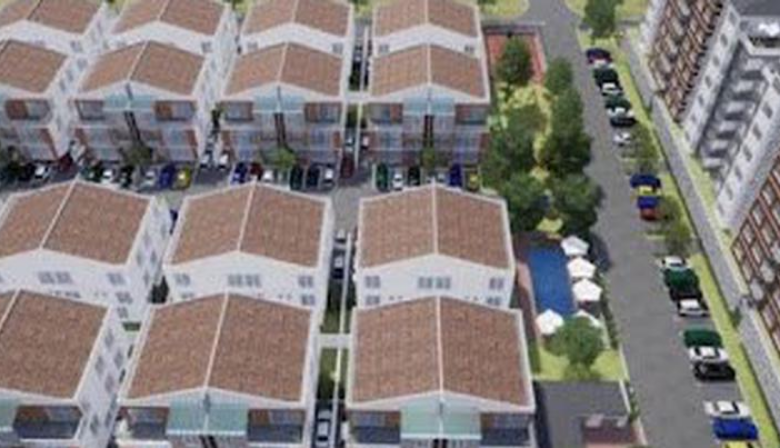Seven States In Nigeria With The Highest Cost Of Living

Nigerians continue to feel the pain of the economy, while inflation lags behind like a fly would a cow’s tail.
Nigerians are arguing over how expensive living has become and how tough it is to afford the essentials for survival.
Every state in Nigeria is affected by the country’s high cost of living, which does not just apply to particular regions.
Given that many Nigerians still find it difficult to adapt to the new standard, the recent withdrawal of fuel subsidies is still a pain in their necks……..Continue Reading
It is not surprising to see Nigerians voice out their public opinion about the economic hardship they face in the various states they reside.
Thus, depending on the cost of living in these areas, we will examine the Seven most costly states in Nigeria to reside in this listicle.
Costs associated with housing, food, clothing, transportation, and personal care have been reduced.
7. Kaduna State
The industrial hub of Northern Nigeria is Kaduna, which has a sizable market.
popular for making petroleum products, steel, textiles, and other materials. It is located in the northwest of Nigeria.
The city also has a population of over 750,000 people and is well-known for its commercial and agricultural villages.
Roads and railroads provide excellent public transportation service to the city.
In this city, you can find cotton, peanuts, sorghum, ginger, and other significant agricultural items.
Kaduna was originally regarded as one of Nigeria’s least expensive States to live in, but due to recent and ongoing development in the State, the cost of living has increased significantly.
6. Delta State
When we talk about Delta State, the first place that comes to our mind is the State capital, Asaba and then Warri.
It is also not a coincidence that these two places are the most expensive places to live in Delta State.
Asaba for example, is well-developed compared to some other cities in Nigeria. Asaba, being the hub of most commercial transactions in Delta State has made the cost of living in the State capital very high.
Residence in Asaba has mostly complained about the high cost they pay for house rent, transportation and also the high price of commodities in the market.
The same thing goes with Warri, even though Warri isn’t the capital of Delta, the cost of living in Warri is on par with the high cost of living in Asaba.
This is a result of the International companies and oil industries in the City of Warri.
The city has high-class residents, middle class and a few low-class residents, however, these social strata are a factor that impacts the cost of living.
5. FTC Abuja
Abuja houses the majority of the head offices of various companies, businesses, multinational firms, hotels, government establishments, and parastatals because it is the political and economic centre of the country.
The city has well-planned, organised roads. Abuja is one of the most expensive cities in Nigeria due to its extremely high cost of living.
In the city centre, a 1-bedroom flat can be rented between N200,000 and N350,000.
A one-bedroom flat outside of these areas costs between N100,000 and N150,000.
On the other hand, the price of a two or three-bedroom flat can range from N600,000 to N2,000,000.
Abuja can be a lot to take in if you don’t have a lot of money, from housing to basic food items, but without a doubt, this city is one of the most beautiful cities to live in Nigeria.
The transportation cost in Abuja also contributes to the cost as the means of transport are mainly cabs or taxis.
People who work in Abuja, on the other hand, have found a way to avoid some of these high costs by living on the outskirts of the city, which is cheaper while commuting to work daily from their homes.
4. Rivers State
See the Full Clip Here
As one of the states that produce oil, Port Harcourt is referred to as the nation’s treasure base.
Port Harcourt, a sizable industrial area with a sizable number of multinational corporations and businesses involved in the petroleum industry, is one of Rivers State’s most expensive areas.
This likely explains why the state is among the most expensive in the nation.
The high concentration of upper- and middle-class residents in Port Harcourt who work in the oil industry tends to raise the price of housing, food, education, and transportation.
The part of the state where a house is located also has an impact on the cost of accommodation, as one might expect.
In Port Harcourt, areas near the Government House and in Trans Amadi are quite pricey.
In this region, a duplex can be rented for between N700,000 and N2,000,000.
If you decide to look outside of this neighbourhood, you’ll probably find a cheaper duplex.
If you stay in Port Harcourt, it makes more sense to get around in your private vehicle.
However, with the removal of the fuel subsidy and the price of fuel doubling, it has even become more expensive to drive in private cars.
For the average resident of Port Harcourt, it is more difficult as they struggle to pay the high price of public transportation to take them to whichever destination they want to go within the State.
Depending on where these residents are going, cabs can cost between N700 to N2000 or more.
3. Kogi State
Kogi State experienced a 25% increase in inflation in May compared to the previous months, according to the Nigerian National Bureau of Statistics.
The cost of living in the State was incredibly high as a result of the increase in inflation, surprise States with higher costs of living like Abuja and Rivers.
The reduction of fuel subsidies was largely responsible for the cost of inflation. The State, particularly its capital, Lokoja, suffered greatly as a result of the termination of fuel subsidies.
The cost of goods in the market has been a frequent source of grievance among Lokoja inhabitants. the expensive transit to get across the state and the abrupt increase in lodging costs within the State, particularly in Lokoja.
2. Ondo State
On the list of our States with the highest cost of living, Ondo State comes in second. This is somewhat surprising given that most Western States in are relatively cheap when compared to other regions of the country.
According to the Nigerian National Bureau of Statistics, before June, Ondo State has a rise in inflation of 25.8%
Food prices soared in the States as well as the price of transportation, accommodation and other necessities.
The removal of the fuel was a major increase in the high cost of living in Ondo State.
Akure, the capital and the commercial hub of the state saw a higher rise in the price of foodstuff, and residents complained about the increased cost of public transport.
However, in June/July the inflation rate in Ondo decreased to 25.4%
1. Lagos Nigeria
Lagos, Nigeria’s commercial capital, is now considered to be the most expensive state in the country.
In its report released on Monday, the National Bureau of Statistics (NBS) stated that, compared to the national average of 22.7%, Lagos State’s inflation rate increased to 25.7% in June.
According to the report, prices for goods and services rose in Lagos State by 25.7% when compared to the same time last year.
Lagos had the highest monthly inflation rate of 2.7% in June, according to the NBS, indicating a faster rate of price changes than other states.
The removal of fuel subsidies by the federal government, which caused a sharp increase in the price of petrol at the pump in Lagos, was the primary cause of this increase.
Lagos had lower fuel prices than other states before the removal because it was close to ports and important depots, which reduced some of the transportation costs related to petrol distribution.
However, as a result of the removal of the subsidy, Lagosians now pay nearly the same amount for fuel as the rest of Nigeria, with fuel prices increasing by more than four times from what they used to be.





